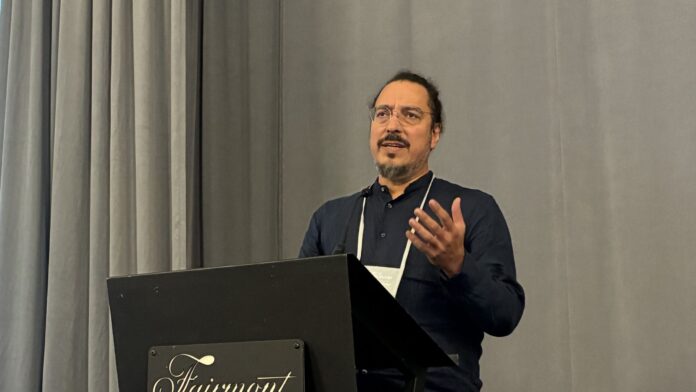Street disorder, addictions and homelessness are a major topic as local government leaders and other officials gathered for the annual Union of B.C. Municipalities (UBCM) convention.
UBCM members will vote on several resolutions this year that touch on housing and community safety, as they gather this week in Victoria.
A panel Monday allowed municipal leaders to hear from people working on the front lines of the crisis, along with other provincial experts.
The panel also heard from local leaders who described the challenges facing their communities due to rising homelessness and addiction.
Nelson Mayor Janice Morrison said a lack of appropriate housing and B.C.’s drug decriminalization policies have accelerated street disorder in her community.
“We are now spending quite a bit of time trying to close Pandora’s box, so to speak,” said Morrison.
She said the province needs to move faster to increase the amount of treatment beds and rehab options.
Nanaimo Mayor Leonard Krog said there’s an estimated 800 to 1,000 people who are unhoused in his city, many with concurrent addiction or mental health issues.
Krog said downtown Nanaimo is largely safe, but said reports of violence create fears that prevent people from coming downtown or visiting the city, harming local businesses and tourism.
“The frustration of it is very high,” said Krog.
Dr. Daniel Vigo, B.C.’s chief scientific advisor for psychiatry, toxic drugs and concurrent disorders, noted the province is grappling with the effects of newer opioids that are 10,000 times more potent than morphine.
The harms are even worse when people are taking illegal drugs that are actually a mix of many substances, including fentanyl, meth, and other toxic chemicals.
“We know there’s a vicious circle between acquired brain injuries and overdoses,” said Vigo.
He said there have been 150,000 overdose episodes in B.C. over the past ten years, leaving more than 17,000 people dead.
Julian Daly, CEO of Victoria-based charity Our Place, said the crisis has led some donors to stop giving to the organization. He said people wrongly believe the organization is contributing to the crisis by supporting those on the streets.
Daly said it’s critical that these issues are treated as a health issue, rather than solely a housing or crime issue.
“No single part of the system can solve this alone,” said Daly. “Not the city, not the health authority, not BC Housing, not the police, not non-profits.”
He also called for more targeting enforcement by police against drug dealers and human traffickers who exploit vulnerable people.
“I’m not talking about criminalizing poverty or mental health or addiction… Enforcement, used wisely, is not the enemy of compassion. It is a tool of protection,” said Daly.
The B.C. Chamber of Commerce also renewed its call for the province to address the issues of crime, violence, vandalism, addiction and mental illness.
Interim CEO Alex McMillan said the impacts of these issues are borne largely at the local level, and local businesses should have a bigger voice in the province’s strategy.

A survey conducted by a coalition of B.C. urban mayors found municipal costs are rising due to increased costs related to homelessness, including shelters, policing, fire services, and sanitation.
The survey found about 21,000 households are on BC Housing’s social housing waitlist across 14 urban municipalities, though it noted actual need is likely higher.
Members of the B.C. Urban Mayors Caucus (BCUMC) spoke Monday on the sidelines of the UBCM convention.
“Every dollar that is spent responding to homelessness is costing local governments, our staff, and our residents in services, infrastructure, and programs that we would otherwise be doing that contribute to all of the quality of life issues that we all want to have in our communities,” said the group’s co-chair, Victoria Mayor Marianne Alto.
She said the group is calling on the province to consider the data and speed up project funding and delivery to help create more homes.
“The survey gives data to what we already know, and we need more support from the province to build enough supportive and affordable housing,” said UBCM president Trish Mandewo.






